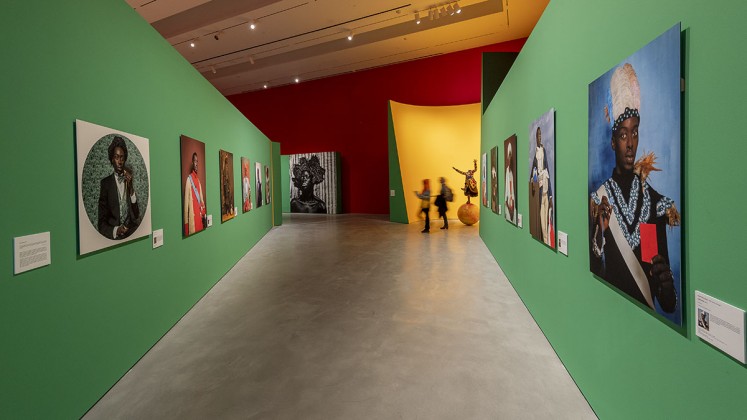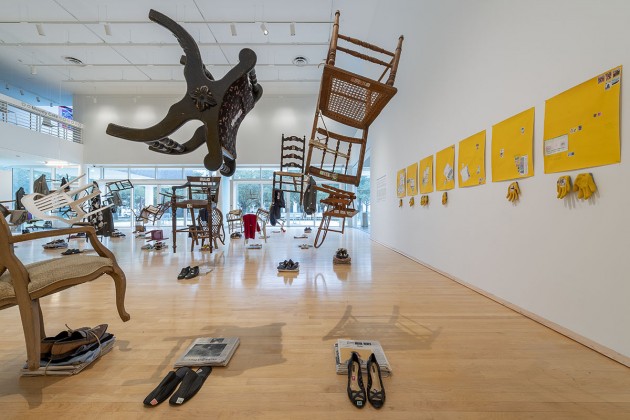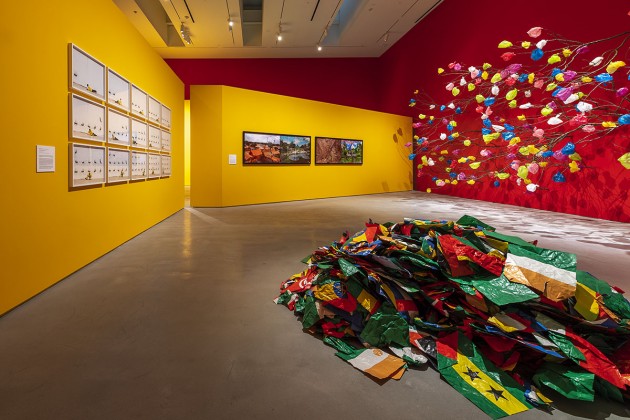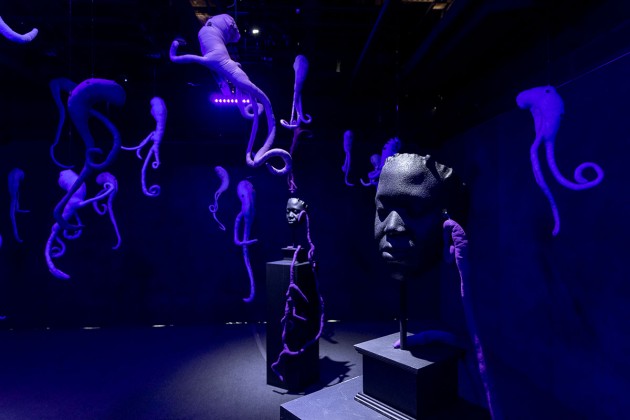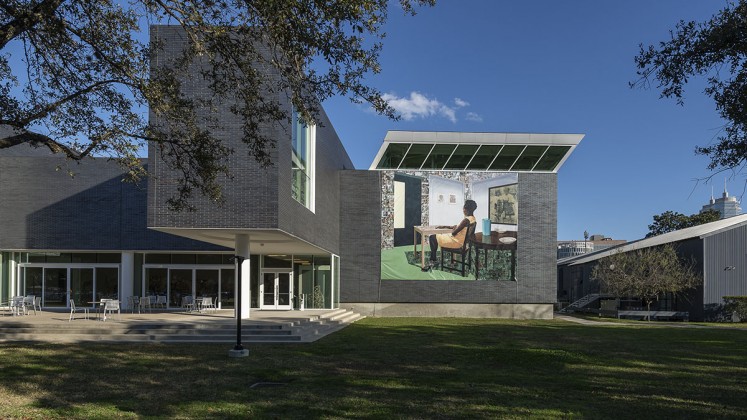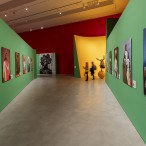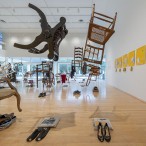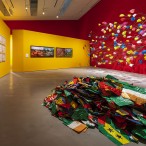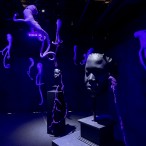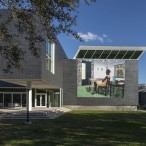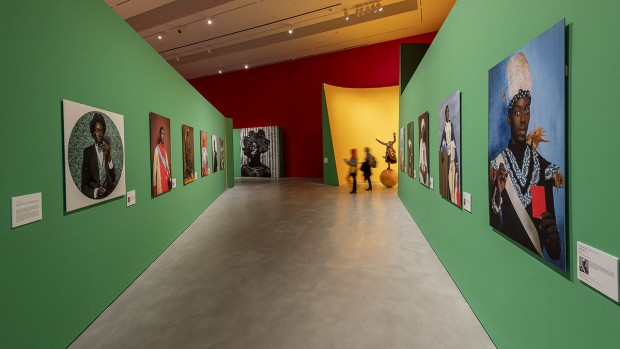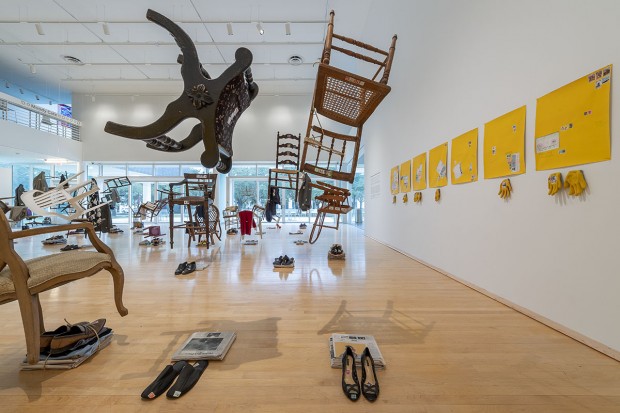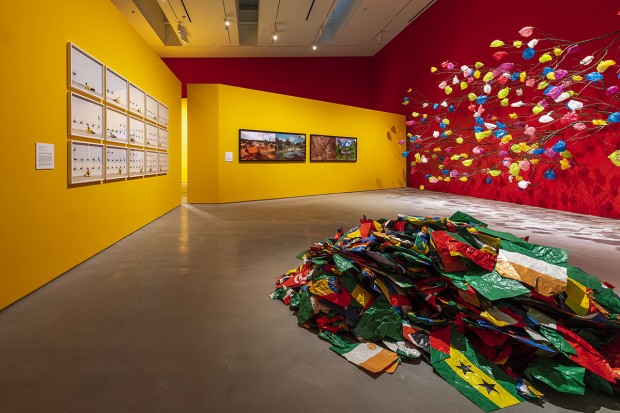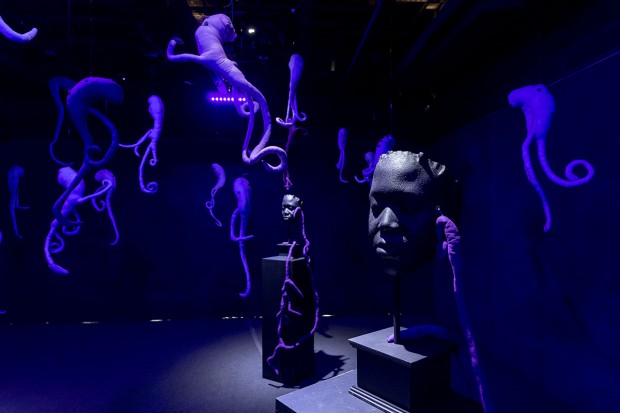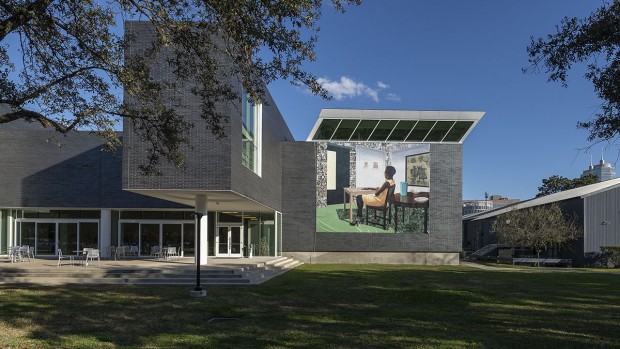Revisionist History: Moody Center Exhibit Reexamines Past

If you’ve ever walked into an art museum and felt like you just don’t get it, you are not alone. Sometimes, no matter how long I stare at a piece of art, I feel like I’m missing the larger point.
That’s why I was grateful to see the spring exhibit at Rice University’s Moody Center for the Arts through the eyes of Alison Weaver, the center’s executive director and an incredibly knowledgeable art historian. Alison seems to know more about art than most of us can claim to know about anything. She walked me through each of the three galleries, rattling off the names and backgrounds of the 10 artists on display and offered her own, scholarly interpretations of each piece.
The three galleries feature work that’s part of an exhibit titled Radical Revisionists: Contemporary African Artists Confronting Past and Present, on view Jan. 24-May 16. The exhibit’s major themes of reclaiming history and examining global migration were chosen with intention.
“We think the issues these artists are grappling with are really timely,” says Alison. “The [exhibit] title really speaks to this trend in the world of contemporary artists addressing the historic past and rewriting it and reclaiming it as their own. We see artists looking at Civil War monuments, for example, and really trying to come to terms with the history of slavery in the U.S. […] Artists in Africa and the diaspora are looking at the colonial past and its impact on people and the environment.”
This idea is perhaps best embodied by the work of Omar Victor Diop, who has 11 self-portraits featured in the gallery. Omar takes portraits of notable African figures and then reinterprets them with references to soccer, both to pay homage to these leaders and to show that history is written in a particular way.
One image, for instance, reimagines a famous portrait of African American abolitionist Frederick Douglass with the artist holding a whistle, as a soccer referee would; another takes a portrait of Dom Nicolau, a 19th century prince of Kongo, and shows him with a soccer ball.
While Omar focuses on photography, the exhibit includes artwork in a variety of mediums including sculpture, painting and mixed media. Patrons will first be greeted by Softening Borders, a site-specific installation that takes up the entire central gallery. The piece, created onsite by Ghanaian artist Serge Attukwei Clottey, uses only recycled materials.
“Serge arrived here with just his suitcase, and then he sourced all these items,” Alison says while pointing to the various objects in the piece, including broken chairs sourced from Houston on trash day, old international newspapers from Rice University’s libraries, plus postage stamps, second-hand shoes and clothing.
Alison explained that the piece is about displacement. Along the walls are yellow canvases symbolizing the “yellow brick road” and the idea that migration is both a journey and a fantasy. “If you’re a refugee going to a new home, you have an idea of what that might be, which may or may not be the reality,” she said.
The exhibit even features a virtual reality experience, where visitors can immerse themselves in a 360-degree cinematic video that they watch through masks molded from the artist’s own face. In this work, artist Mary Sibande investigates a domestic worker named Sophie, who, I learned, is the artist’s alter ego.
I must admit, this piece stumped me. Despite Alison’s explanations, I’m not sure my logical brain fully comprehended the artistic thinking behind the haunting, purple anatomical figures that fill the gallery space.
Still, while I often leave art galleries with confusion and museum fatigue, I left this one with a newfound understanding of colonial history and its legacy.
Other visitors can have a similar experience, as student gallery guides are available during open hours to lead tours and answer questions about the pieces. The Moody Center for the Arts is located at 6100 Main St., and it is free and open to the public Tuesday through Saturday, 10 a.m.-5 p.m.
Want more buzz like this? Sign up for our Morning Buzz emails.
To leave a comment, please log in or create an account with The Buzz Magazines, Disqus, Facebook, or Twitter. Or you may post as a guest.


